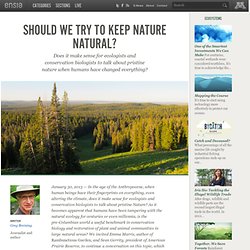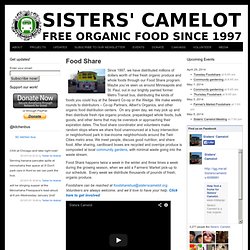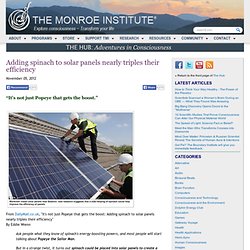

Should We Try to Keep Nature Natural? January 30, 2013 — In the age of the Anthropocene, when human beings have their fingerprints on everything, even altering the climate, does it make sense for ecologists and conservation biologists to talk about pristine Nature?

As it becomes apparent that humans have been tampering with the natural ecology for centuries or even millennia, is the pre-Columbian world a useful benchmark in conservation biology and restoration of plant and animal communities in large natural areas? We invited Emma Marris, author of Rambunctious Garden, and Sean Gerrity, president of American Prairie Reserve, to continue a conversation on this topic, which began last summer at the Aspen Environment Forum.
Emma MarrisAuthorRambunctious Garden: Saving Nature in a Post-Wild World Now, that doesn’t mean that 1491 should be forbidden as a restoration goal. Food Share « Sisters' Camelot. Since 1997, we have distributed millions of dollars worth of free fresh organic produce and whole foods through our Food Share program.

Maybe you’ve seen us around Minneapolis and St. Paul, out in our brightly painted former Metro Transit bus, distributing the kinds of foods you could buy at the Seward Co-op or the Wedge. We make weekly rounds to distributors – Co-op Partners, Albert’s Organics, and other organic food distribution centers. On any given day, we may pick up and then distribute fresh ripe organic produce, prepackaged whole foods, bulk goods, and other items that may be overstock or approaching their expiration dates. Adding spinach to solar panels nearly triples their efficiency. November 05, 2012 “It's not just Popeye that gets the boost.”

From DailyMail.co.uk, "It's not just Popeye that gets the boost: Adding spinach to solar panels nearly triples their efficiency" By Eddie Wrenn Ask people what they know of spinach's energy-boosting powers, and most people will start talking about Popeye the Sailor Man. But in a strange twist, it turns out spinach could be placed into solar panels to create a much greater supply of electricity. Scientists in Tennessee discovered that combining the green-leafed veg with silicon produced a much stronger electrical current in solar cells than present methods.
Economic Justice for Family Scale Farming. Www.quietearth.org.uk. Permaculture. Sustainable communities & Permaculture.